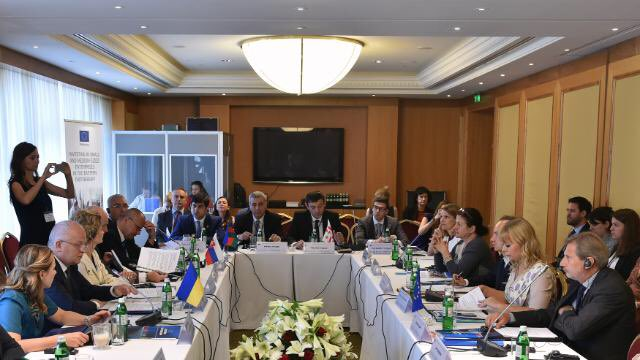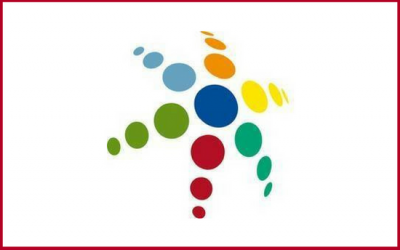On 28-29 July the conference “Security Challenges of the EU’s Eastern Neighborhood” organized by the Eastern Partnership Civil Society Forum’s (EaP CSF) Georgian National Platform and Liberal Academy Tbilisi brought together in Tbilisi, Georgia over 60 representatives of civil society from 6 EaP countries, Georgian government and EU institutions, as well as prominent security experts. The event provided a platform to identify solutions to the key security threats (soft and hard power) for the EaP countries and it also sought to develop recommendations for the EU and NATO to stabilize the region, as well as to identify the measures that can be taken by the civil society.
Janos Herman, Head of the European Union Delegation to Georgia, welcomed the participants on 28 July, together with the EaP CSF representatives Krzysztof Bobinski, Lasha Tughushi and Kakha Gogolashvili. During the panel discussions the Georgian government was represented by Advisor to the President of Georgia for the Foreign Affairs Tengiz Phkhaladze and the First Deputy State Minister for Reconciliation and Civil Equality Ketevan Tsikhelashvili whereas the EU was represented by Jakub Kalensky from EEAS East StratCom Task Force.
The EaP countries face considerable security challenges as primarily demonstrated by unresolved territorial conflicts, and their internal tensions. Moreover, Russia’s aggressive actions in the region, from attempts to change the foreign policy choices of the EaP countries, to excessive interference in the domestic political processes and explicit usage of hybrid methods of influence, cannot be neglected. For the EU, the region has become an area of instability and uncertainty due to increased hostilities in disputed territories, political crises and stalled transitions.




